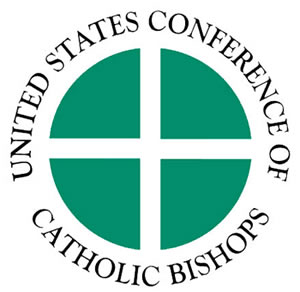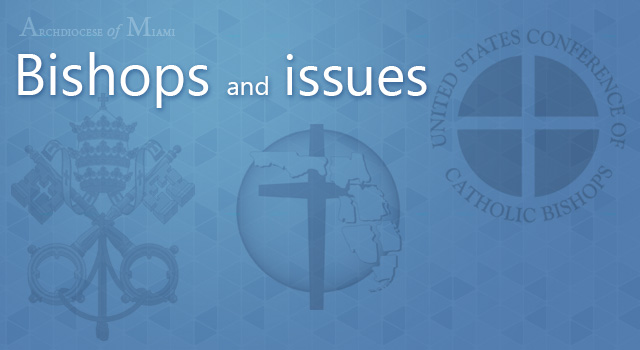By US Conference of Catholic Bishops -
WASHINGTON, D.C. | Archbishop Thomas Wenski has joined his fellow Catholic bishops in hailing as a “victory for religious freedom” the U.S. Supreme Court's decision, handed down June 26, in the case of Trinity Lutheran Church v. Comer.
Trinity Lutheran’s pre-school had been barred from participating in a Missouri state program that provided recycled pieces of spare tires to schools, so that they could make their playground surfaces softer and safer for children. The Supreme Court ruled 7-2 that the exclusion of churches from an otherwise available public benefit violates the free-exercise clause of the U.S. Constitution.
Archbishop Wenski called the ruling “good news! It perhaps signals the death knell for anti-Catholic Blaine Amendments passed into many state constitutions in the late 19th century.”
He cited Florida's Blaine Amendment, which the state Supreme Court used to bar the so-called “opportunity” vouchers for public school children wishing to enroll in Catholic schools.
“Many countries much more secularized than the U.S. - Australia, France, Canada, for example - subsidize education in faith-based schools. That we don't in this country is a holdover from the anti-Catholicism of 19th century America,” Archbishop Wenski said. “'Public’ schools were basically Protestant, and anti-Catholic prejudice conspired to keep state funds from supporting Catholic parochial schools."

Archbishop William E. Lori of Baltimore, chairman of the U.S. Bishops’ Ad Hoc Committee for Religious Liberty, called the ruling “a landmark victory for religious freedom. The Supreme Court rightly recognized that people of faith should not be discriminated against when it comes to government programs that should be made available to all.”
Archbishop Lori also alluded to the “pernicious” Blaine Amendments.
“Blaine Amendments to state constitutions, most of which date back to the 19th century, stem from a time of intense anti-Catholic bigotry in many parts of the country,” Archbishop Lori said. “We are glad to see the Supreme Court move toward limiting these harmful provisions, which have restricted the freedom of faith-based organizations and people of faith to serve their communities.”
The U.S. Supreme Court also ruled June 26 on the revised "travel ban" - the Trump administration's Executive Order 13870 - barring refugees and travelers from six majority-Muslim countries from entering the U.S. The high court overturned preliminary injunctions issued by federal courts in Maryland and Hawaii and upheld by the Fourth and Ninth Circuit appellate courts.
Pending a full hearing when the Supreme Court begins a new term in October, the justices narrowed refugee resettlement and travel from the six Muslim-majority countries to individuals who can prove a “bona fide relationship with a person or entity in the United States.” That is, they have family members or jobs awaiting them in the U.S., or have been admitted to U.S. schools and universities.
Bishop Joe Vasquez of Austin, who chairs the U.S. bishops' Committee on Migration, issued the following statement:
“Today’s decision will have human consequences. While my brother bishops and I appreciate the Court’s ruling to allow individuals who have a ‘bona fide relationship’ with a person or entity in the United States to continue arriving, we are deeply concerned about the welfare of the many other vulnerable populations who will now not be allowed to arrive and seek protection during the proscribed pause, most notably certain individuals fleeing religious persecution and unaccompanied refugee children.”
The Trump administration had said the ban would be in effect for 90 days while it reviewed the vetting process for people from those countries.
“Going forward, as the Administration begins its review of the refugee program, we urge a transparent, efficient and timely review,” Bishop Lori said. “We ask that such review include civil society and refugee service providers as well as national security and immigration experts. We believe it is vital to utilize the full expertise of the existing resettlement program when conducting such an important evaluation.”

